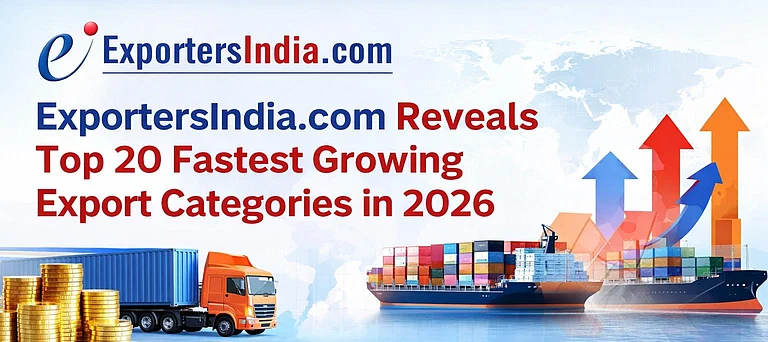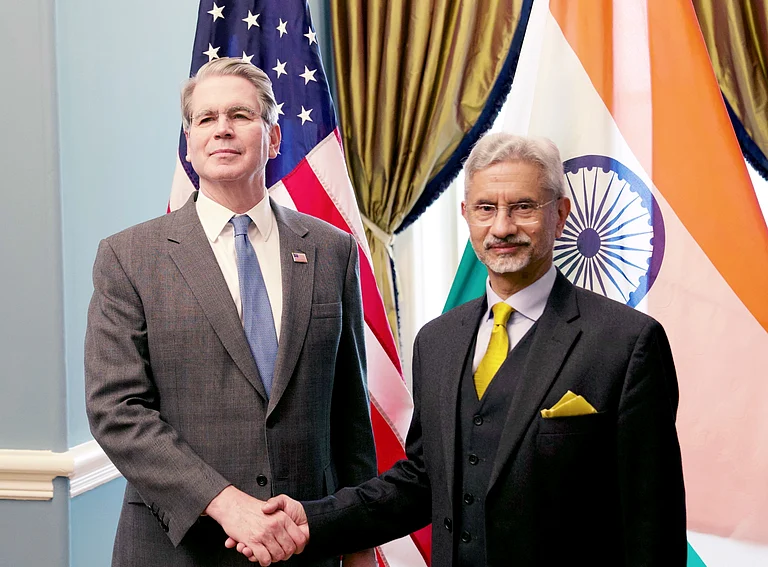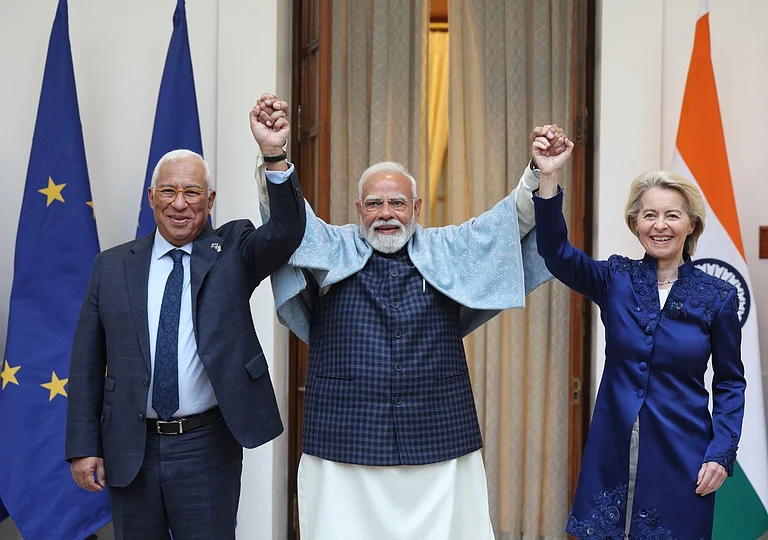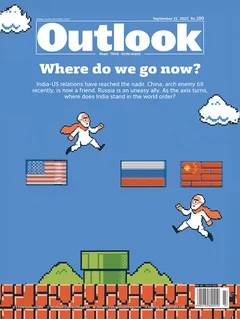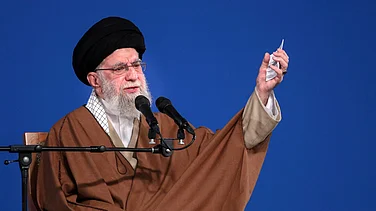
The author was at the Japan-Africa TICAD-9 in Yokohama,
TICAD-9 saw 40 African countries, including 33 represented by heads of government, participating
The author noted that Africa as a whole resists binding commitments to any major power on divisive global issues like the Ukraine war or the Gaza crisis.
Recently, I was at the Japan-Africa TICAD 9 in Yokohama, where 40 African countries, including 33 represented by heads of government, participated. Africa sought economic partnership, functional engagement, and capacity building for its youthful population. It did not offer blind support to Japan’s strategic priorities, but agreed on core principles. This reflects a wider pattern: Africa as a whole resists binding commitments to any major power on divisive global issues like the Ukraine war or the Gaza crisis. On these issues, consensus within Africa itself is often lacking. However, agreement is easier to achieve on global challenges such as pandemics, debt stress, and the need for foreign investment.
Importantly, the era of counting heads of state at summits to gauge diplomatic “success” is fading. Africa’s partnerships are becoming more statesmanlike, functional, and less overtly strategic. After the Ukraine crisis began, a South Africa-led delegation visited Moscow and Kyiv in June 2023, not to side with either, but to advocate for peace and to ease the economic distress inflicted on them by the war. On Gaza, divisions are sharper: some countries openly criticise Israel, while others remain muted due to bilateral ties or aid dependence.
With the US, there remains closer cohesion on certain issues despite the perils of tariffs and the expiration of the African Growth and Opportunity Act (AGOA) this month; its uncertain renewal threatens African exporters. The suspension of the activities of the US Agency for International Development (USAID) has hurt Africa the most.
In July, five African leaders from West and Central Africa visited US President Donald Trump to discuss critical mineral supply chains, where the US seeks to counter Chinese dominance. Gabon, Guinea-Bissau, Liberia, Mauritania and Senegal are countries with small populations and economies that lavished praise on President Trump. The US explored facilitating a ceasefire in the Democratic Republic of Congo, where Rwanda is active in Eastern Congo. The European Union, which was the main development partner, has been gradually displaced as others—China, India, Turkey, and Korea—expanded their footprint, often linking development cooperation with Foreign Direct Investment (FDI).
These new partners generally do not demand a political or strategic price for engagement. Europe’s earlier Lomé Convention and later the Economic Partnership Agreements (EPAs) incorporated governance monitoring into trade, but while concessions benefited Africa, they also attracted third-country investment to leverage those concessions. Now, with the African Continental Free Trade Area (AfCFTA), African economies are striving for self-reliance, regional market integration, and increased intra-African trade. Similarly, the African Union has become more functional, addressing agriculture, health, pandemics, terrorism, and technology.
A key divide in recent years has been between Anglophone and Francophone Africa, with the former increasingly perceiving France—not China, Russia, or the US—as its main problem. This has led to French setbacks both economically and militarily, particularly in the Sahel, where French counterterrorism forces have been evicted and often replaced by Russia’s Wagner Group, now rebranded as the Africa Corps.
Today, European influence is diminishing, partly as development assistance declines and democracy diminishes. The US is intensifying its presence, mainly to secure critical minerals and diversify supply chains away from China. China is trying to preserve its massive infrastructure investments, historically tied to resource access. Russia, re-entering the continent, is focusing on security-for-minerals arrangements, with the Africa Corps now involved in about a dozen countries, with mixed success. Meanwhile, India and Japan have pursued steady, capacity-building partnerships centred on development cooperation, investment, and training African youth for nation-building, echoing the core theme of the India-Africa Forum Summits (IAFS).
The Global South and Africa’s Position in the Emerging Multipolar Order
This pragmatic, multi-layered diplomacy feeds into the broader question: Where does Africa lean in the great power contest—toward the West, or toward the China-Russia axis?
China and Russia—The Non-Western Alternative: China continues to dominate the infrastructure and trade space through the Belt and Road Initiative and the Forum on China-Africa Cooperation (FOCAC). In Sub-Saharan Africa, Chinese solar, telecom, port and rail projects are ubiquitous. Russia, conversely, offers hard security partnerships: Mali, Burkina Faso, Niger, Mozambique and others have embraced Russian advisors and arms as alternatives to French or other troops.
Both Moscow and Beijing seek to expand platforms like BRICS and the Shanghai Cooperation Organisation (SCO) as cornerstones of a non-Western global order. The recent expansion of BRICS aims to rewrite the rules of global trade and finance by challenging the dollar’s dominance and building alternative development banks. In the expansion of BRICS, Egypt and Ethiopia are now members, while Nigeria and Uganda are the new partners. Nigeria is within the ambit of the USA’s AGOA benefits from which Uganda and Ethiopia were relegated due to human rights concerns. Such aspects do not emerge within BRICS.
The West: Retrenchment and Recalibration
Western influence remains significant but is increasingly transactional. The European Union’s leverage via trade agreements is waning; USA’s engagement is now centred on critical mineral security, supply chain diversification, and countering China, rather than broad-based development. Washington’s credibility is also undermined by selective application of international law, especially in Gaza.
South Africa epitomises the multi-aligned Global South strategy: maintaining economic ties with the West while hosting naval exercises with Russia and China, pushing for UN reform, and filing a genocide case against Israel at the International Court of Justice. Pretoria does not define this as siding with Beijing or Moscow, but as asserting African agency. The US does not see it that way and is neglecting the South African presidency of the G20 for 2025 even though the US is the G20 lead for 2026.
Africa’s Agency in a Fragmented World
Africa is neither uniformly tilting toward the West nor decisively joining the China-Russia-Iran-North Korea axis. Instead, its nations are adopting a pragmatic, interest-driven approach, seeking development finance from China, security from Russia, market access from the US, and partnership diversification from Japan, India, Turkey, and Korea. South Africa’s leadership in multilateral forums, its Gaza stance, and its role in the Ukraine mediation mission highlight this nuanced positioning, but Africa does not always lead the missions.
The era of ideological non-alignment has evolved into functional multi-alignment, with Africa carving out room to manoeuvre amid great power rivalries. For the Global South, this is less about choosing sides and more about reshaping the global order to reflect its own priorities: debt relief, fair trade, technology access, and youth-driven growth.
It is time to revive the IAFS process and amplify India’s lead by inducting the African Union into the G20 and conducting Voice of Global South Summits during its G20 Presidency in 2023. Like India, Africa too would prefer to stand straight rather than lean toward any side.
(Views expressed are personal)
MORE FROM THIS ISSUE
Gurjit Singh is former ambassador to Indonesia, Ethiopia, ASEAN and the African Union









